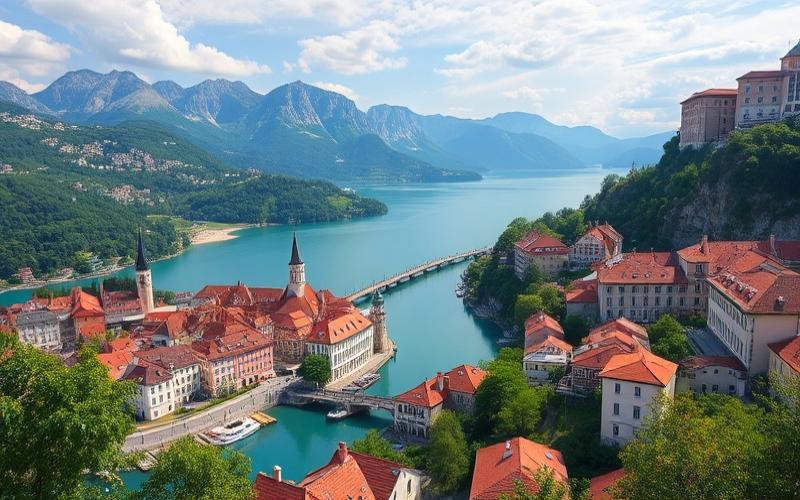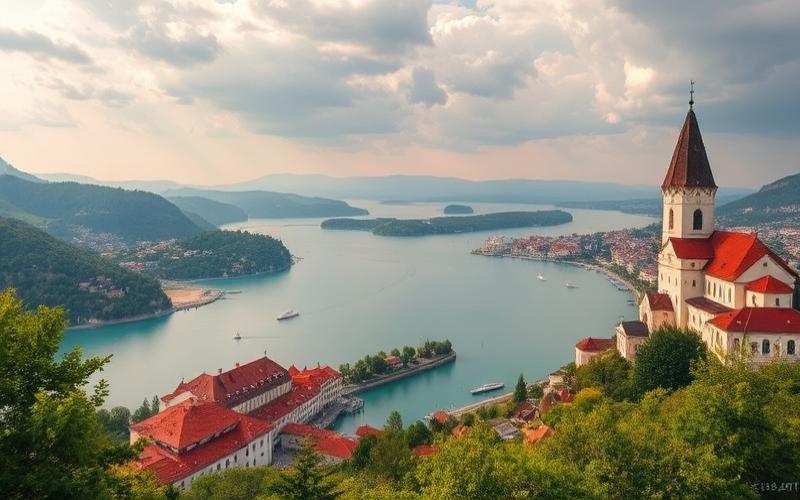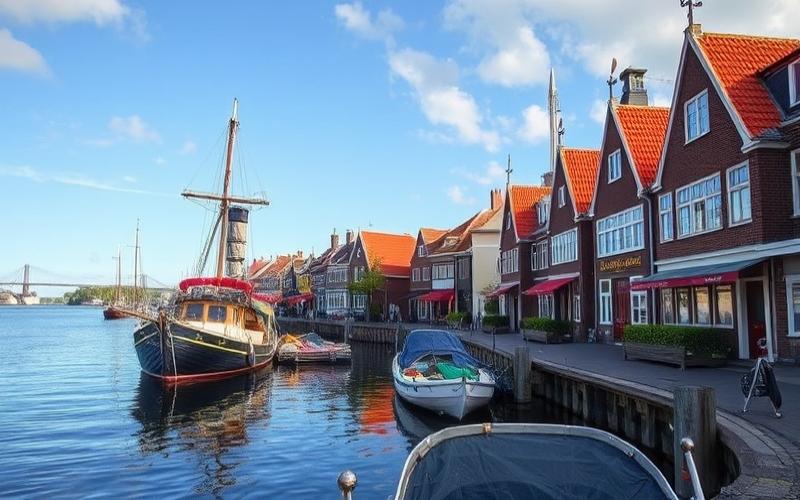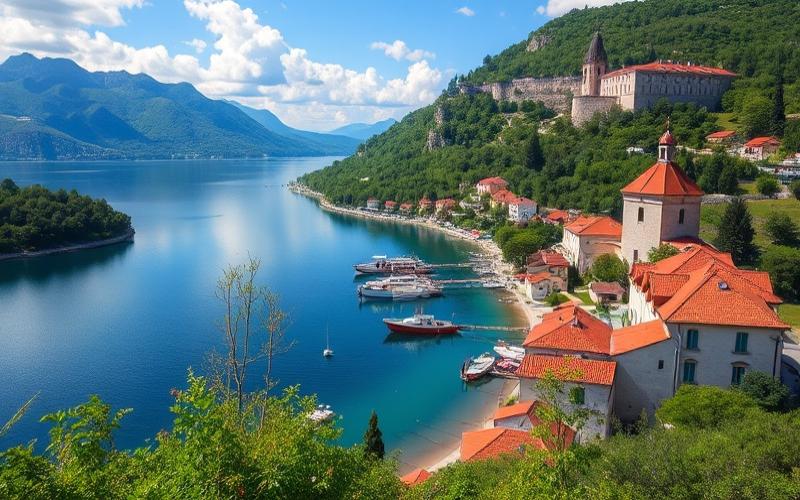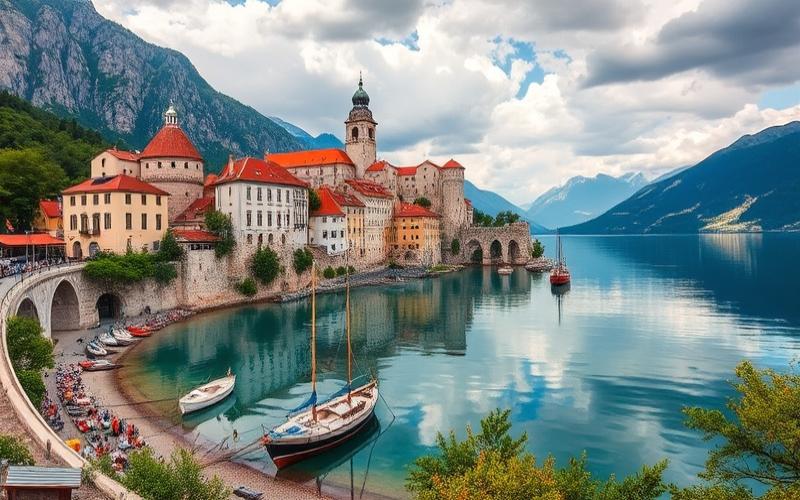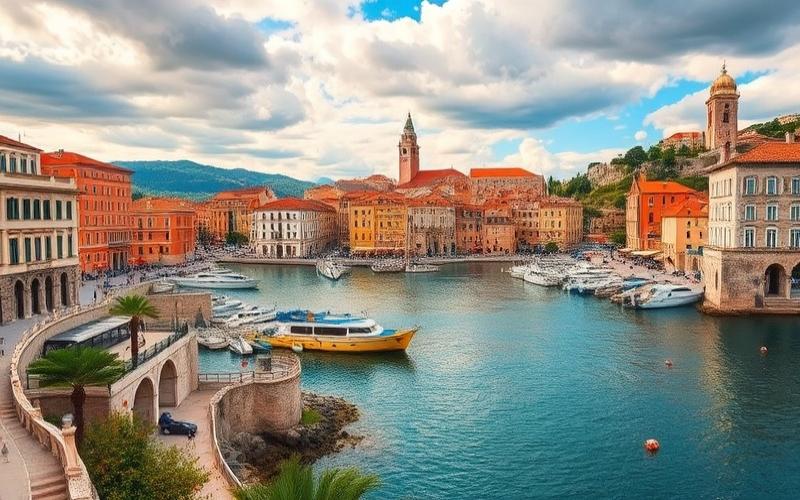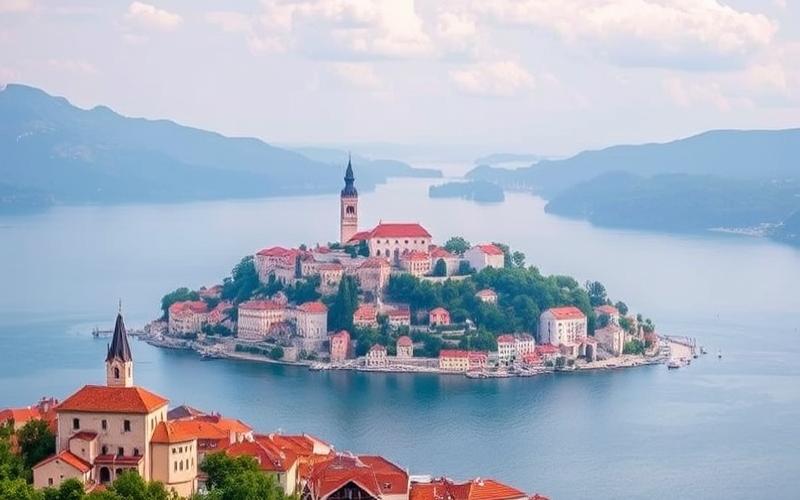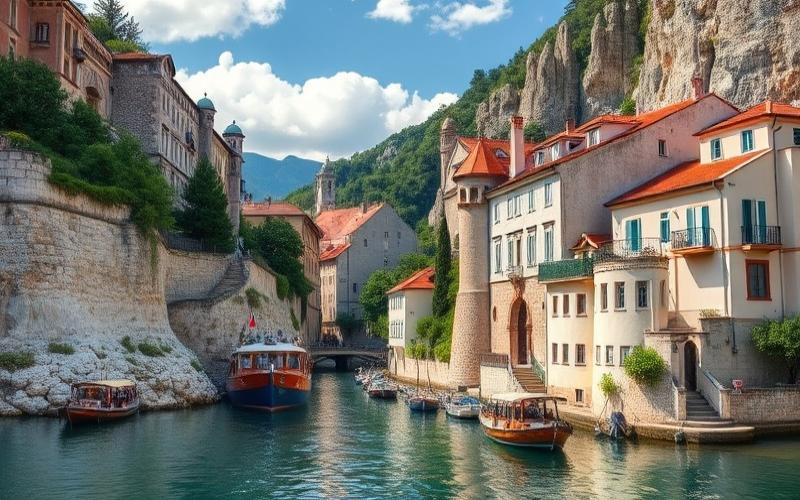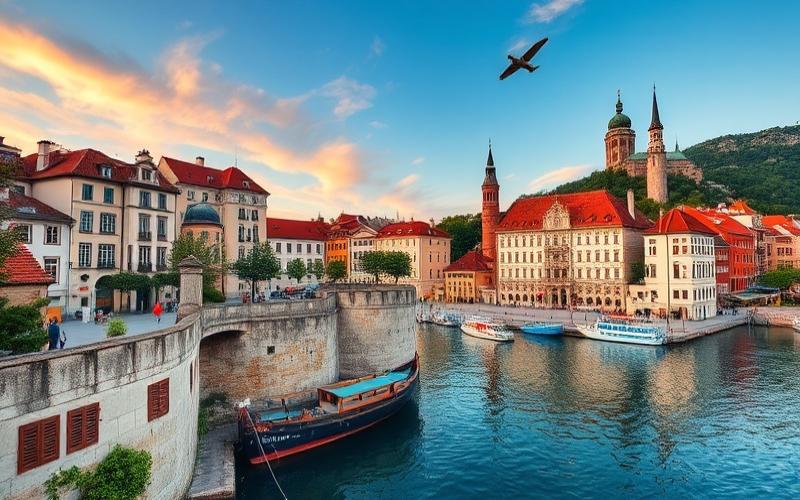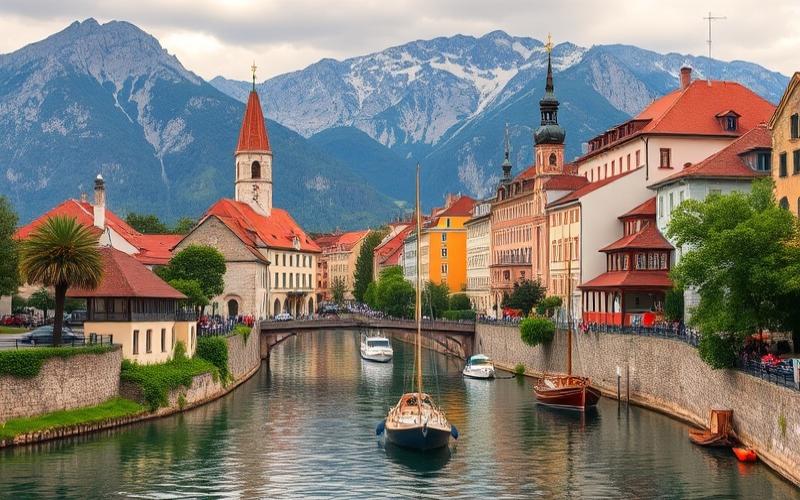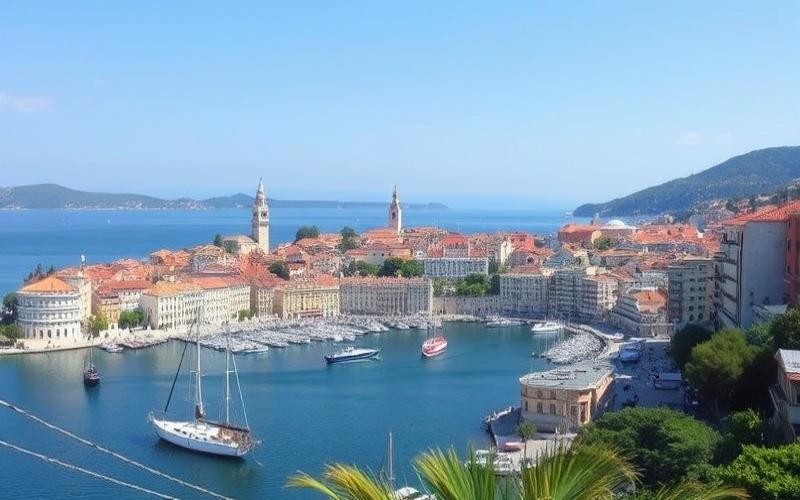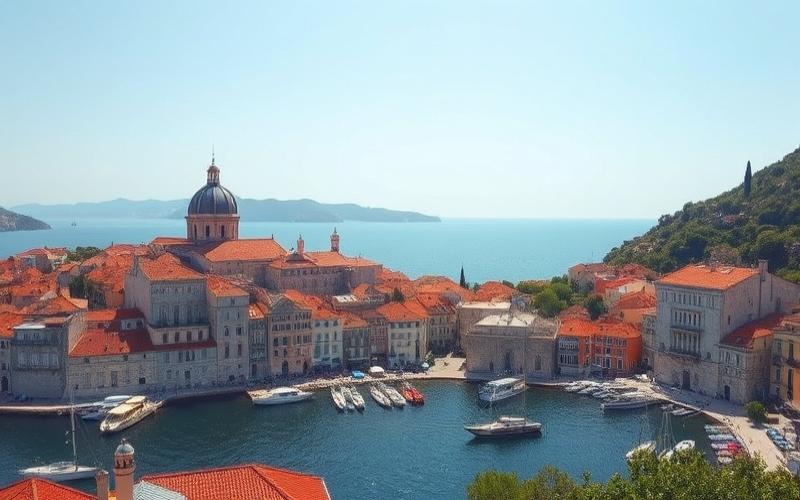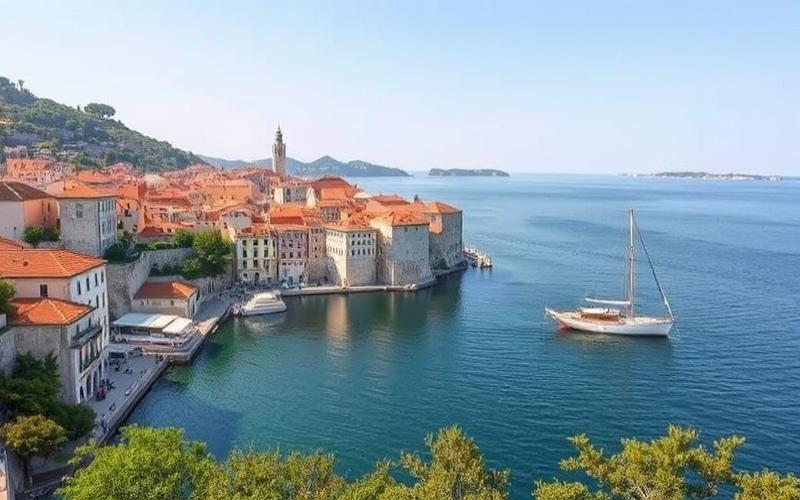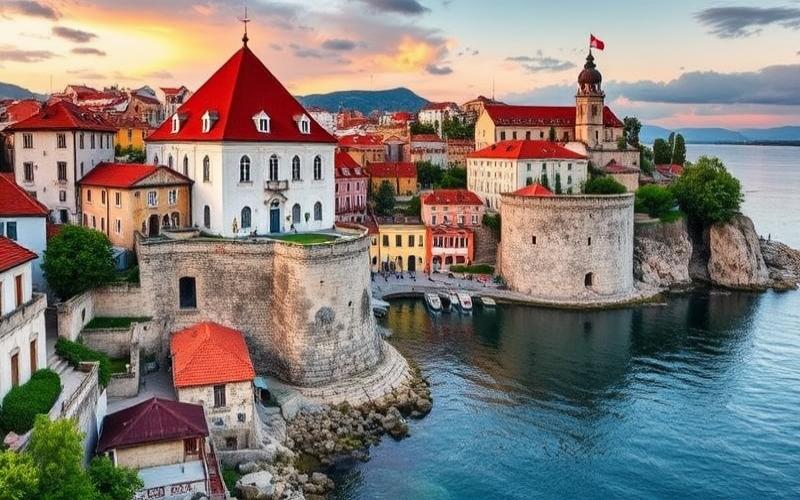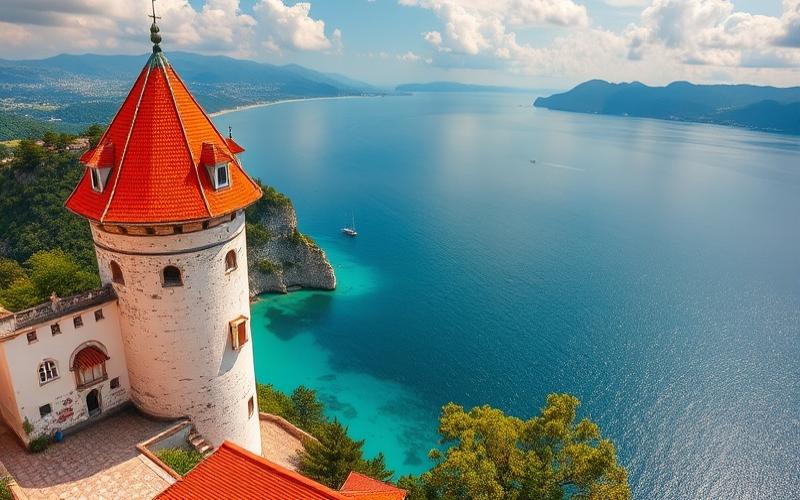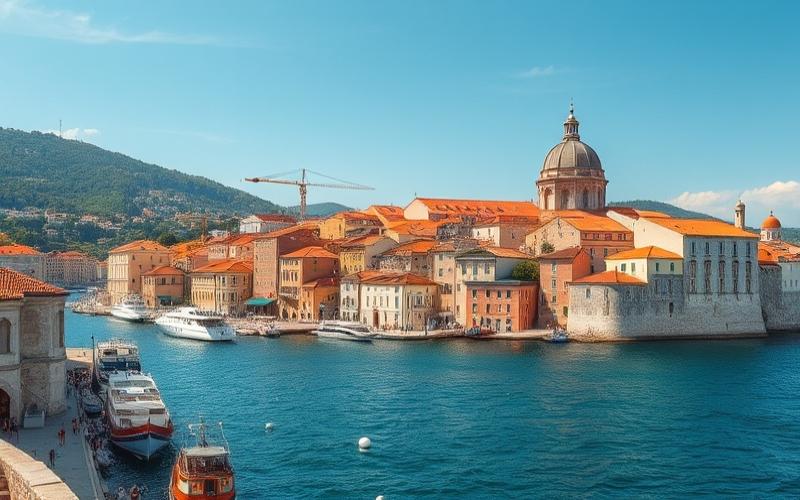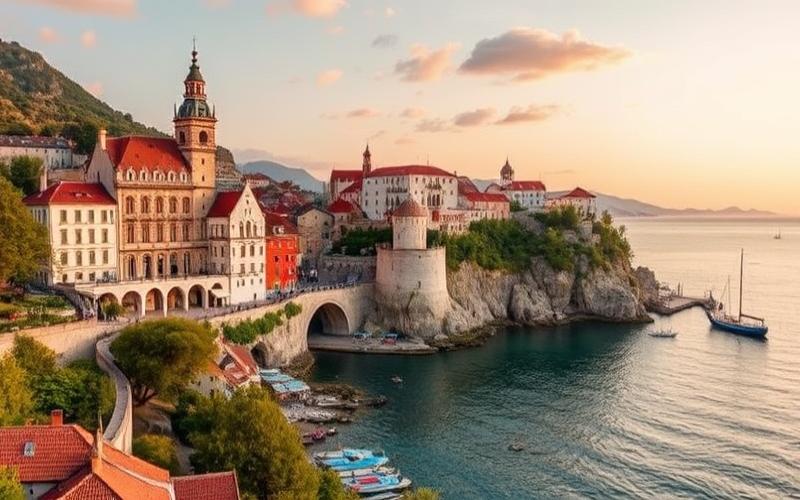
 Published on and written by Cyril Jarnias
Published on and written by Cyril Jarnias
Buying Real Estate in Croatia: A Guide for Foreigners
Buying real estate abroad can be an exciting dream for many, and Croatia, with its picturesque landscapes and rich cultural heritage, offers numerous attractive opportunities for foreigners considering property investment.
However, navigating the purchasing process in Croatia can seem complex due to the country’s specific legal and administrative requirements.
Whether you’re drawn to the beaches of the Dalmatian coast, historic cities, or the tranquility of the islands, understanding the key steps to acquire property is essential for navigating this market with confidence.
Through this guide, we’ll demystify the procedures to help potential investors seize these unique opportunities with confidence.
Good to Know:
EU nationals enjoy favorable conditions for real estate purchases in Croatia, similar to Croatian citizens.
Understanding Real Estate Regulations and Obligations in Croatia
Specific Regulations and Obligations for Foreigners Wanting to Buy Real Estate in Croatia
Buying real estate in Croatia as a foreigner is possible but subject to strict rules that vary depending on the buyer’s nationality and the property type.
Main Laws and Regulations
- EU/EEA citizens can purchase real estate in Croatia under the same conditions as Croatian citizens, with no restrictions on property type (excluding agricultural land and forests).
- Non-EU/EEA citizens must:
- Obtain prior approval from the Croatian Ministry of Justice.
- Prove that a reciprocity agreement exists between Croatia and their home country.
- There is a moratorium on foreign acquisition of agricultural land, extended until summer 2023. Its lifting remains subject to legislative changes.
Applicable Properties and Restrictions
| Property Type | EU/EEA Citizens | Non-EU/EEA Citizens |
|---|---|---|
| Apartments, houses | Yes | Yes, under conditions |
| Buildable land | Yes | Yes, under conditions |
| Agricultural land/forests | No | No |
Administrative Steps for Registration
- Verification of acquisition rights (reciprocity agreement or EU/EEA citizenship).
- Signing a purchase contract with the seller (written contract, not necessarily notarized at this stage).
- Submission of approval application to the Ministry of Justice (for non-EU/EEA).
- Obtaining official approval (variable timeframe, often several weeks).
- Property registration with the land registry (up to 60 days for completion).
- Payment of property transfer tax (typically 3% of purchase price).
Tax Obligations for Non-Residents
- Payment of a property transfer tax of 3%.
- No annual property tax on private properties.
- Rental income generated in Croatia is subject to local tax and must be declared.
Differences in Treatment by Nationality
| Nationality | Simplified Procedure | Ministerial Approval | Reciprocity Required |
|---|---|---|---|
| EU/EEA Citizen | Yes | No | No |
| Non-EU/EEA Citizen | No | Yes | Yes |
Bilateral Agreements and Local Companies
- Citizens from countries with a bilateral reciprocity agreement with Croatia can purchase subject to approval.
- Anyone, regardless of nationality, can establish a Croatian company (d.o.o.) and acquire real estate under the company’s name, with no restrictions on property type.
- Hire a local real estate attorney to verify property legality, check for debts or mortgages, and ensure transaction compliance.
- The notary plays a key role in certifying signatures, verifying identities, and validating the transaction. The purchase deed is only fully enforceable after official registration.
- Account for administrative delays, especially for ministerial approval (non-EU/EEA) and land registry registration.
Key Points to Remember
- Always verify the property’s legal status and document regularity.
- Anticipate administrative delays, particularly for non-EU nationals.
- Purchasing through a Croatian company can simplify procedures for certain property types or bypass some restrictions.
To secure the purchase, it’s highly recommended to hire a local attorney and prioritize notarized transactions.
Good to Know:
In Croatia, foreigners wanting to buy real estate must be aware of several specific regulations. EU nationals benefit from a simplified process with no special authorization needed, unlike non-EU citizens who often must obtain approval from the Ministry of Justice, except under bilateral agreements that might facilitate the purchase. Restrictions mainly apply to properties in certain areas, such as agricultural land and protected coastal zones. To register a property, documents must be submitted to the local cadastre, and a notary’s presence is essential to validate transactions, ensuring sale legality. Property taxes typically include 25% VAT for new constructions and 3% transfer fees for existing properties. Consulting a local real estate attorney is strongly advised to navigate the complex process and ensure compliance with all legal obligations in force.
Demystifying International Taxation for Foreign Buyers
Demystifying International Taxation for Foreign Buyers in Croatia
Purchasing real estate in Croatia as a non-resident requires a thorough understanding of local and international tax rules. Here are the key aspects to know:
Main Taxes Applicable to Foreign Buyers
| Tax or Fee | Rate / Terms | Who Pays? | When? |
| Real Estate Acquisition Tax | 3% of property value | Buyer | After land registry registration |
| Annual Property Taxes | Varies by municipality | Owner | Each year |
| VAT (new/developer) | 25% (if applicable) | Buyer | At purchase if new property |
- Real Estate Acquisition Tax: It amounts to 3% of the property’s sale price, calculated on the market value determined by the tax administration.
- Annual Property Tax: The amount depends on the municipality and property type.
- VAT: Applies only to purchasing a new property from a VAT-registered developer.
Tax Implications in the Home Country
Owning real estate in Croatia can create tax obligations in the buyer’s country of residence (asset declaration, taxation on rental income, wealth tax, etc.).
Income generated from rental in Croatia is generally taxable in Croatia and often must be declared in the home country, subject to potential bilateral tax treaties to avoid double taxation.
Bilateral Tax Treaties
Croatia has signed tax treaties with many countries to avoid double taxation on income and wealth. These agreements determine where different types of real estate income are taxed and under what conditions a tax credit may apply.
It’s crucial to check if such a treaty exists between Croatia and the buyer’s home country to optimize overall taxation.
Tax and Administrative Steps for Compliance in Croatia
- Obtain a Croatian tax identification number (OIB).
- Open a local bank account.
- Verification of property title and cadastral status (often via an attorney or notary).
- Signing a preliminary sales agreement (with deposit, typically 10%).
- For non-EU/EEA nationals: application for purchase authorization from the Ministry of Justice.
- Signing the sales deed before a notary.
- Registration with the municipal cadastre and land registry.
- Payment of applicable taxes.
Summary of Compliance Steps
| Step | Estimated Time |
| Obtain OIB number | A few days |
| Ministerial approval (non-EU) | Weeks to months |
| Cadastral/land registry registration | A few days to 60 days |
Risks and Points to Watch
Procedures are more complex for non-EU/EEA nationals, subject to ministerial approval.
Rental income received in Croatia is taxed locally and must be declared, even for non-residents.
Importance of Professional Support
It’s essential to consult an international tax advisor or local expert to:
- Analyze cross-border tax implications.
- Anticipate reporting obligations in both countries.
- Ensure tax compliance and avoid double taxation.
- Optimize investment structure according to applicable tax treaties.
Key Takeaways
Purchasing real estate in Croatia as a foreigner requires rigorous tax preparation, thorough knowledge of local administrative procedures, and anticipation of tax consequences in the home country. Support from a specialized professional is essential to secure and optimize your investment.
Good to Know:
Foreign buyers of real estate in Croatia must familiarize themselves with various aspects of international taxation. First, they are subject to real estate transaction tax, typically 3% of the purchase price, and must pay annual property taxes. It’s essential to check if their home country has a bilateral tax treaty with Croatia, which can influence tax obligations and avoid double taxation. Non-residents must also follow administrative steps to register with Croatian tax authorities. Consulting a tax advisor is highly recommended to navigate these complexities and optimize taxation, especially if the buyer plans to rent the property, which may create additional tax obligations both in Croatia and their home country.
Essential Documents to Become a Property Owner in Croatia
Essential Documents to Become a Property Owner in Croatia:
| Document | Obtaining Procedure | Typical Timeframe | Notes by Nationality |
|---|---|---|---|
| Valid Passport | Provide a copy of current valid passport. | Immediate (if already held) | Same for all nationalities |
| Croatian Tax ID Number (OIB) | Application to Croatian tax administration, presentation of passport. | 1 to 3 days | Mandatory for all buyers |
| Proof of Financial Solvency | Bank certificate or recent bank statement requested from your bank. | 1 to 7 days | May be required especially for non-residents or non-EU nationals |
| Signed and Notarized Sales Contract | Contract drafting, notarized signature, prior legal verification. | 3 to 10 days | Must be notarized for land registry registration |
| Ministry of Justice Authorization | Submission of application with complete file after preliminary agreement; applies only to non-EU nationals. | 2 to 6 months | Not required for EU citizens |
Necessary Steps to Obtain These Documents and Finalize the Purchase:
- Contact a local attorney to verify property title and legal status.
- Sign a preliminary contract and typically pay a deposit (often 10% of price).
- Open a bank account in Croatia and obtain an OIB number.
- Gather financial proof (bank certificate).
- Prepare and sign the final sales contract before a notary.
- For non-EU nationals, submit a purchase authorization application to the Croatian Ministry of Justice, accompanied by all required documents.
- Register the notarized contract with the land registry (zemljišna knjiga).
- Pay transfer duties (approximately 3-4% of price) and additional fees (notary, attorney, agency).
- Receive the final property certificate (vlasnički list) once registration is complete.
Role of Attorney and Notary:
Attorney:
- Verifies property legality, document compliance, cadastral and tax status.
- Drafts and negotiates sales contract.
- Assists with administrative and tax procedures.
Notary:
- Authenticates sales contract.
- Officially notarizes signatures.
- Submits file for land registry registration.
Variations by Buyer’s Nationality:
EU Citizens:
- Simplified procedure, similar to Croatian citizens.
- No need for Ministry of Justice authorization for residential property purchases.
Non-EU Nationals:
- Longer and more complex procedure.
- Requirement to obtain formal authorization from Ministry of Justice, which can take several months.
- Possibility to acquire through establishing a Croatian company to speed up the process or expand purchase options (especially for commercial or agricultural real estate).
Typical Timeframes to Gather These Documents in Croatia:
- Personal and financial documents: 1 to 2 weeks.
- Notarized sales contract: 1 to 2 weeks after agreement.
- Ministry of Justice authorization: 2 to 6 months (non-EU only).
- Land registry registration and property certificate issuance: 2 weeks to 3 months depending on administrative workload.
Key Takeaway:
Support from a specialized local attorney and notary involvement are highly recommended at every stage to secure the transaction and ensure file compliance. Timeframes can vary significantly depending on nationality and case complexity.
Good to Know:
To become a property owner in Croatia, it’s crucial to have a valid passport and a Croatian tax identification number, obtainable from local tax authorities. You must also provide proof of financial solvency, often in the form of a bank certificate. The sales contract must be signed and notarized, a step where attorney or notary involvement is generally recommended to ensure deed validity. Non-EU nationals must also obtain authorization from the Ministry of Justice, a process that can take several weeks. The buyer’s nationality can influence document gathering timeframes; for example, EU citizens typically benefit from a simplified process. It’s advisable to start these steps early to avoid potential delays and to work with professionals to navigate the Croatian legal system.
Acquiring Property in Croatia: Is It Possible for a Foreigner?
Croatian legislation allows foreigners to acquire property on its territory, but conditions vary based on nationality and bilateral agreements. The reciprocity principle is fundamental: only nationals from countries that allow Croatians to purchase property there can enjoy similar rights in Croatia. These agreements facilitate or restrict access depending on the country of origin.
Countries Whose Citizens Can Purchase Without Special Conditions:
- All European Union (EU) member states
- Countries in the European Economic Area (EEA)
European citizens purchase under the same conditions as Croatians, except for certain agricultural and forest properties subject to restrictions.
| Countries Allowed Without Restriction | Examples |
|---|---|
| EU Member States | France, Germany, Italy… |
| EEA non-EU | Norway, Iceland… |
Buyers from Third Countries:
- Requirement of a bilateral agreement with Croatia
- Prior obtaining of authorization from the Croatian Ministry of Justice or Foreign Affairs
- Frequent restrictions on direct purchase by individuals; possibility however through establishing a local company
Concrete example:
A Swiss citizen wanting to buy an apartment must verify that an agreement exists between Switzerland and Croatia. If so, they must submit a complete file to the competent ministry to obtain official authorization before any land registry registration.
Administrative Steps to Follow to Acquire Property as a Foreigner:
- Obtain a Croatian tax number (OIB).
- Verify land title through an attorney or notary.
- Sign a preliminary agreement (“avant-contrat”) with payment of a deposit (~10%).
- Submit file to competent ministry if necessary:
- Signed contract
- Valid passport
- Proof of initial payment
- Documents proving fund origin
- Finalize before notary then register with municipal cadastre and local court.
- Pay applicable taxes.
| Step | Estimated Time |
|---|---|
| OIB | A few days |
| Ministerial approval (non-EU) | Several weeks to months |
| Cadastral registration | A few days to weeks |
Typical Required Documents:
- Valid passport
- OIB number
- Signed preliminary/contract
- Financial proof
Tax Implications for Foreigners Buying in Croatia:
Real Estate Acquisition Tax: typically 3% of price, paid during official transfer.
Other possible fees: notary/attorney fees, bank fees related to international transfer…
- Single property tax: 3%
- Possible additional fees depending on case complexity or property type purchased
Practical Tips to Facilitate the Process:
- Systematically hire a specialized local attorney
- Thoroughly verify all land/cadastral titles before final signature
- Account for sometimes lengthy administrative delays outside European Union
- Consider establishing a local company if direct acquisition impossible
- Ensure all payments go through locally opened bank account
Example/testimonial: A French investor shares that “obtaining the Croatian tax number took only two days; then my attorney verified all cadastral documents before signing at the notary—everything went quickly thanks to simplified procedures reserved for European citizens.*”
A Canadian buyer indicates having waited “nearly three months to receive the essential ministerial approval before finalizing my purchase of a secondary residence near Split—you need to be patient but each step is clearly framed by law.*”
Don’t forget:
- Prepare your administrative file thoroughly from the start
- Work exclusively with recognized professionals
- Get precise information about your personal tax situation after acquisition
This framework ensures transparency and legal security during foreign real estate investment in Croatia!
Good to Know:
In Croatia, legislation allows EU citizens to purchase properties without restrictions, thanks to bilateral agreements, while those from third countries must obtain authorization from the Ministry of Justice, requiring documents such as proof of funds and criminal record extract. Nationals from countries like the United States, Russia, or China may be subject to restrictions while needing to prove a reciprocal acquisition rights relationship with Croatia. Tax-wise, a real estate purchase imposes a 3% transfer tax, and hiring a local attorney is recommended to ensure compliance and simplify the administrative process. Success examples include buyers who benefited from local experts to navigate the market and avoid common pitfalls related to cultural and legal differences.
Disclaimer: The information provided on this website is for informational purposes only and does not constitute financial, legal, or professional advice. We encourage you to consult qualified experts before making any investment, real estate, or expatriation decisions. Although we strive to maintain up-to-date and accurate information, we do not guarantee the completeness, accuracy, or timeliness of the proposed content. As investment and expatriation involve risks, we disclaim any liability for potential losses or damages arising from the use of this site. Your use of this site confirms your acceptance of these terms and your understanding of the associated risks.



